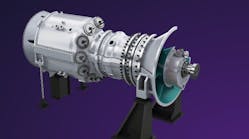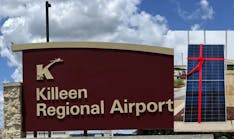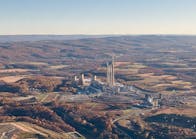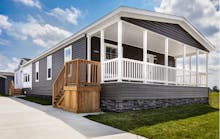Pro-Nuclear Group report argues Advanced Reactors provide Cost-Effective, C02-free Baseload to Net Zero
The pro-nuclear energy group Breakthrough Institute released a new report, highlighting the climate and energy benefits of advanced nuclear technology and suggesting ways to overcome the barriers to nuclear technology adoption.
The ‘Advancing Nuclear Energy: Evaluating Deployment, Investment, and Impact In America’s Clean Energy Future’ report finds that there is a huge demand for advanced nuclear technology in the least-cost decarbonization pathway in the U.S. The demand is inelastic and strong across a range of cost scenarios.
The report stated that the technology can complement and balance power generation from clean energy sources, like solar and wind. Moreover, successful commercialization of advanced nuclear reactors can lower the cost of energy transition.
Using the Vibrant Clean Energy’s WIS:dom-P model, the study shows that an energy transition pathway incorporating advanced nuclear energy will need cumulative capital investment of $150 billion to $220 billion by 2035. The investment will increase to $830 billion to $1.1 trillion by 2050.
The study considers widespread commercial deployment of advanced reactors to begin in the early 2030s and accelerate gradually to potentially supply some 20% to 48% of the domestic clean electricity requirement in 2050. This is about 1,400 to 3,600 terawatt-hours (TWh) per year. It is estimated that total domestic deployed advanced nuclear capacity reaches 19 to 48 gigawatts-electric (GWe) in 2035, accumulates to 54 to 150 GWe in 2040, and grows to 190 to 470 GWe by 2050.
“This report provides a more comprehensive and realistic estimate of the potential for advanced nuclear energy in a decarbonized energy system,” said Adam Stein, director for advocacy and research group Nuclear Energy Innovation, in a statement. “Typically reports don’t consider advanced nuclear reactors at all, and if they do they are the operational capabilities are modeled the same as conventional reactors. We find that when these characteristics of advanced reactors are considered they can provide a large portion of electricity across all bounding scenarios while enabling variable clean energy sources like wind and solar, and reducing overall system costs.”
More Reactive stories on Carbon-Free Nuclear potential for the Energy Transition
DOE awards $8.5M to next-gen Nuclear Demonstration projects
One Small Step: NASA details $5M contracts for exploring Nuclear Fission on the Moon
Dairyland Power Cooperative signs MOU with NuScale Power
Subscribe to our free EnergyTech newsletter for more on All Roads to the C&I Energy Transition
Nuclear reactor power plants do not emit greenhouse gases in generating electricity. However, conventional-sized plants, such as the new Vogtle 3 and 4 projects in Georgia, can cost upwards of $30 billion to build as a result of enormous safety and construction needs.
Small modular reactors, such as those designed by NuScale Power and other companies, could provide modular, less expensive and small, safer plants. None have been built yet in the U.S., but the Idaho National Lab and other suitors are working on potential projects by the end of the decade.
The study outlined the potential benefits of using advanced nuclear energy including cost reduction, the supply of reliable clean energy for hard-to-abate sectors due to low-emissions heat and steam. The energy from these nuclear reactors can also repower fossil-fuel powered plants.
The barriers to deployment of advanced nuclear energy can be overcome through capital investment, developing suitable supply chains, formulation of new federal regulatory frameworks and lifting of state-level moratoria and restrictions on nuclear projects. Additionally, making cost improvements will increase the magnitude of advanced nuclear deployment.
Deployment can be accelerated through appropriate public policy support including federal loan guarantees, technology-neutral clean energy tax credits, inclusion of nuclear energy in state clean energy portfolio standards and regulatory licensing modernization and fee reform.
The U.S. has about 94 working nuclear energy reactors which generated close to 20 percent of the nation's electricity mix. Nuclear also accounts for more than half of the carbon-free power produced in the U.S.





